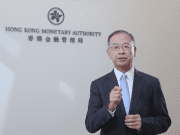How do you Develop your Career as a Wealth Manager?
A Wealth Manager is a sensitive and serious profession. Like doctors and lawyers, they are trusted and relied upon their professional expertise. At the same time, they deal with the unpredictable person-to-person relationship, moods and emotions. They share the same outcome: none can control the outcome.
Examples:
- Doctor – Guiding the patient to the best chance of recovery
- Lawyer – Guiding the client to the best chance of victory
- Wealth Manager – Guiding the client with the optimal financial roadmap and actions
As a Wealth Manager, how do you develop your career effectively? We look at 9 ways you can develop your career:
1. Identify Your Purpose

Managing wealth is no easy task. Since no one can predict the future, managing wealth involves the journey of managing uncertainties and a positive outlook in life.
If your purpose is to be the best stock-picker, someday you are going to be wrong. If your purpose is going to be an investment-savy advisor, what happens to advice on death, illness, cashflow and estate transfer? If your purpose is to be allocating assets in the safest products – the rest of the world is growing with GDP growth of 6.8% in China (2015) and 7.5% in India (2015), accordingly to World Bank Data. This means safe assets are deflating at a faster rate.
How should you develop your role? What is your purpose as a Wealth Manager?
- Are you a custodian or a guide of their assets?
- Are you a planner or are you a wealth builder?
- Would you be with them for 1 year, 5 years or forever?
- Are you making them rich so that your clients can do nothing forever?
- Are you their go-to advisor for any financial matters?
2. Setting a Timeframe

Competition for talent, frequent poaching, evolving wealth management products and services, high pay and ample opportunities results in high turnover rate in the financial advisory industry. For Wealth Managers, it is not easy to remain in one financial advisory firm, without facing constant temptation of moving to “greener pasture.” What timeframe should you allow for your personal goals to be achieved?
Common Considerations:
- Should they grow within an organization
- Switching a few quickly to decide the better place to be in
- Time required to build relationship with clients
- Time required to meet or exceed sales target
- Time required to gain promotion or better opportunities
All these require time. A change in job every 6 months could cause distrust within clients. But a change in job means the advisor learn newer things and gain industry experience.
Related Articles:
- 5 Types of Financial Institutions to join as a Wealth Manager
- Where can you start as a Wealth Manager in Banking?
- How you become a Personal Banker?
- What do you do after Personal Banking?
- How do you become a Priority Banker?
- How do you become a Private Banker?
- What does a Relationship Manager Do?
3. Building Knowledge

Wealth Management is a knowledge intensive business. You have to understand the financial markets, products, solutions, numbers and projections, and to skilfully explain in clear and simple messages to clients.
Example of Knowledge Base:
- Global Financial Market
- Asset Classes
- Wealth Management Products
- Wealth Management Solutions
- Regulations and Administrations
4. Relationship Skills

Building and nurturing relationship with clients is extremely important. You may have the strongest knowledge, but if you are unable to communicate and hold a decent conversation with client, they might not be comfortable sharing about their financial affairs with you.
This means you will end up not being able to provide them any financial advice, which could translate into sales opportunities.
- How to survive as a Personal Banker?
- How to survive as a Priority Banker?
- How to survive as a Private Banker?
5. Identify Client Segment

Identifying your preferred client segment is important. You want to move into a role, talking to clients whom you can interact well with.
- If you like to mix around with the rich or the man-on-the-street
- If you prefer to talk to a professional or a businessman
- If you prefer to talk to people who are well-travelled or people who tend not to move around.
Read More: Should you build a Career in Mass Market, Affluent, HNW or UHNW?
6. Continuous Learning

Managing wealth is about managing the future. Wealth Managers have to constantly upgrade and learn about the latest changes, especially if you are providing wealth management services to an international market.
Being able to hold conversations with different profile of clients means you have to constantly keep up with the trends, current affairs and varying conversations.
7. Differentiating Yourself

Is your wealth management service provider more important or is your career more important? Wealth Managers have to constantly differentiate themselves to meet with the changing demands of an increasingly open financial market.
Questions to Consider:
- Are you a Basic or Valued-Added Service Provider?
- Are you a Low Cost or Premium Service Provider
Related Articles:
- 5 Ways to charge the highest fee possible
- 6 Ways to generate High Revenue
- How do Wealth Managers compete against low cost providers?
- 8 Reasons why customers don’t understand the value of Wealth Managers
- 7 Secrets how the old rich achieve success with Wealth Managers
- 7 Ways Top Wealth Managers Create Value for Clients using Loans, Credit & Leverage
8. Identify Backup Plans

Times have changed with rapid economic development. There is no certainty that the wealth management unit will still be intact in the next 5 years.
This means frequently assessing if your platform is the suitable one for your client. The role of a Wealth Manager is to manage risks for clients, assessing your firm’s risks is equally important, including systemic risks.
- 5 Shocking Deals that shake-up Private Banking in Asia
- 7 Important Risks to Manage for Clients
- 20 Traders who lost more than a Billion
9. Identify Industry Trends

There was a time when stockbrokers were the only access to buying and sell stocks. Today, stockbrokers face dwindling income and increasingly competition from self-directed trading. In the 1990s, electronic trading, technology and computers eliminated the need for money market traders, causing many traders to lose their jobs.
Besides forecasting wealth & money trends for clients, Wealth Managers have to understand and adapt to the changes in the global economy, financial system and wealth management industry.
These are 9 ways to develop your career as a Wealth Manager.
Recommended Articles:
- 9 Reasons why you became a Wealth Manager or Financial Advisor
- Would you want to be a Wealth Manager or Financial Advisor for the rest of your life?
- 5 Reasons why being a Wealth Manager is one of the best job to be in
- Where can you start as a Wealth Manager in Banking?
- 5 Types of Financial Institutions to join as a Wealth Manager
- 8 Reasons why customers don’t understand the value of Wealth Managers
- 7 Secrets how the old rich achieve success with Wealth Managers
Related Articles:
- How you become a Personal Banker?
- How do you become a Priority Banker?
- How do you become a Private Banker?
- What does a Relationship Manager Do?
- Everything about a Personal Banker
- Everything about a Priority Banker
- Everything about a Private Banker
- Everything about a Relationship Manager
Sign Up / Register
Caproasia Users
- Manage $20 million to $3 billion of assets
- Invest $3 million to $300 million
- Advise institutions, billionaires, UHNWs & HNWs
Caproasia Platforms | 11,000 Investors & Advisors
- Caproasia.com
- Caproasia Access
- Caproasia Events
- The Financial Centre | Find Services
- Membership
- Family Office Circle
- Professional Investor Circle
- Investor Relations Network
Monthly Roundtable & Networking
Family Office Programs
The 2025 Investment Day
- March - Hong Kong
- March - Singapore
- July - Hong Kong
- July - Singapore
- Sept- Hong Kong
- Sept - Singapore
- Oct- Hong Kong
- Nov - Singapore
- Visit: The Investment Day | Register: Click here
Caproasia Summits
- The Institutional Investor Summit
- The Investment / Alternatives Summit
- The Private Wealth Summit
- The Family Office Summit
- The CEO & Entrepreneur Summit
- The Capital Markets Summit
- The ESG / Sustainable Investment Summit
































